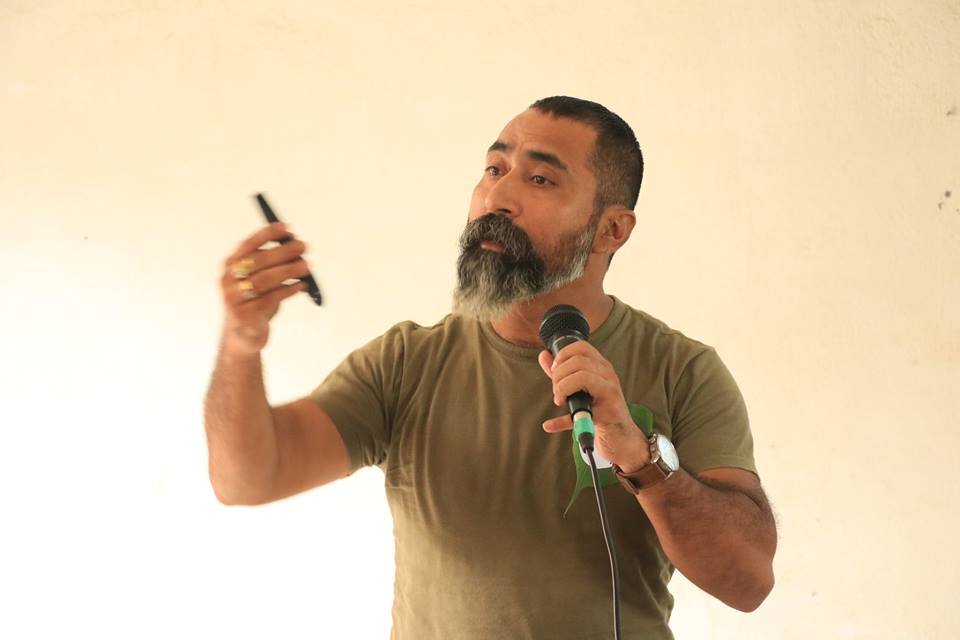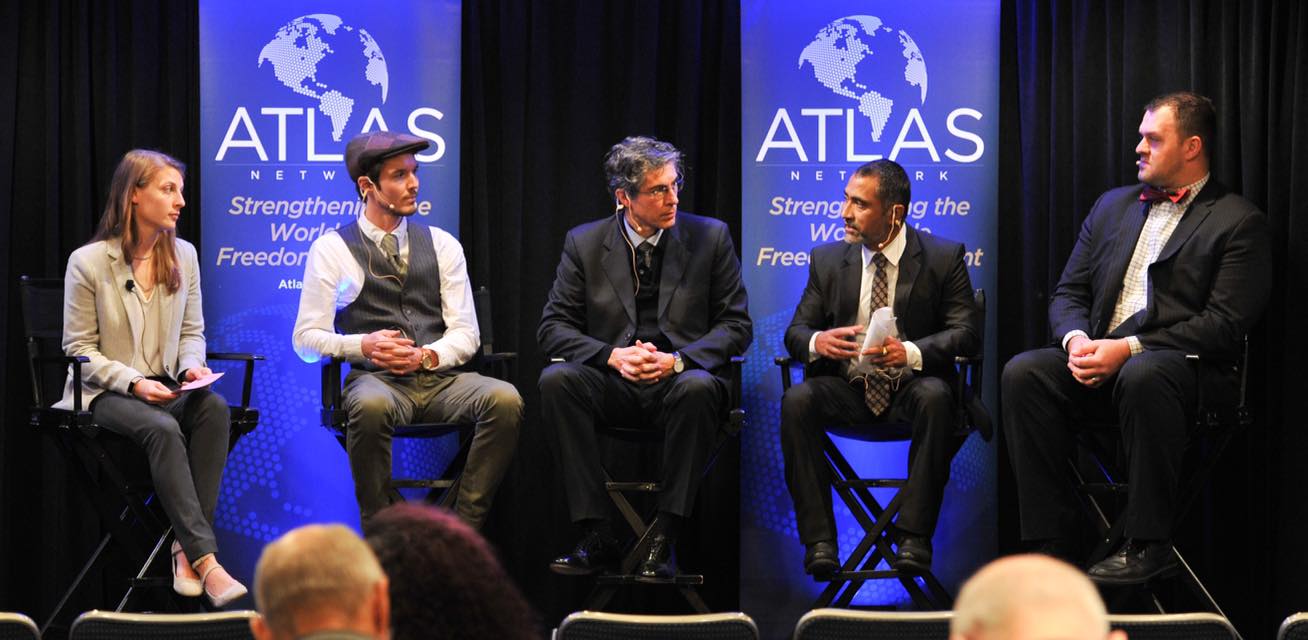SOCIAL CHANGEMAKERS BLOG SERIES ISSUE NO.4: BASANTA ADHIKARI, SOCIAL ACTIVIST, BIRATNAGAR- YOUTHS SHOULD READ POLITICAL ECONOMY
If you are in Biratnagar and start counting social activists, probably Basant Adhikari will be your first count. Since the last 10 years, he is actively raising his voice for good governance and speaking on the socio-economic issues of Biratnagar. He is also a leadership trainer and motivational speaker. Catalyst talked to him about his life journey as a youth social activist.
How did you come to this social field?
It was back to 2056 BS. we had a local club named ‘Friends Youth Club’ in Pichara in Biratnagar. Through this, we used to organize small programs like sports activities, mainly cricket tournaments. We used to request locals for a small fund. We grew much faster and even played B division national cricket within 2 years. We also conducted social programs. We used to provide jut bags to every house, so they could use it to throw plastic waste. We used to collect that later on. We also organized the Deusi Vailo program (religious practice organized during Tihar Festival) and used to buy the necessary things for the club. Later I was chosen for the Youth Development Program under the municipality in association with Peace Core Volunteers and served for three years as a volunteer. But later on, I got involved in drugs, became addicted and and got stuck. I was just 16 at that time.
How did you overcome your addiction?
Drug addiction took everything from me. I lost my job, love, respect, friends, everything. In 2002, I realized enough was enough. I wanted to leave it behind, but it was so hard. To divert my attention, I went to Mr. Baburaj Shrestha sir (he was coordinating Waste Management Program of the Biratnagar Municipality) asking for a job. Luckily, he was looking for a paid volunteer so I got the opportunity to serve in that program. I used to earn Rs. 2300 per month, but more important than that I was rehabilitating. I worked there for two and half years. Then I got the opportunity to work in the HIV sector in Jhapa. After joining that job, I continued my study from there and completed my diploma via self-study. Then I applied for Youth Initiative in 2007 and worked as a regional coordinator for 3 years. Finally, I got a scholarship opportunity at a university in South Korea for a Master’s Degree. Returning back from there, I involved myself in ‘Gari Khana Deu’ campaign and am now running the organization named ‘Bikalpa an Alternative.’ I promote public policy by organizing different discussion programs on several socio-economic issues.
Let’s go a little more into your past. How were you able to leave you drug addiction? Was it your involvement in social initiatives that helped you to overcome your addiction?
I say no to your second question, although it helped a bit. Always my mother used to say to me that I was not supposed to be that kind of person.’ She used to weep remembering my childhood how I aimed to be a successful person. My parents and relatives were worried. My inner voice too was saying to me that I should get rid of my addiction at some point, but I was not finding a proper way. My heart used to say to me I was not that guy. I was not born to be like that. I realized that voice was not dead. There are other people as well, who gave some place for me to stand and correct myself. I am hence thankful to Baburaj Sir for believing me at that time.
Since a long time now you have been involved in advocating for the local issues of Biratnagar. Why local issues?

The thing is you can’t change the whole world and you can’t change the whole country,but you can change the society around you. It is also a really big thing, but I know the environment of the place where I stay. I know where things are going right and wrong and when should I speak. Even though I can’t change everything as I am not in a position of authority to make policies, I can sensitize people on local issues. Public pressure enables policymakers and politicians to know from which direction the wind is blowing. What people say and think or desire is what they should listen to. Hence this discourse is very much needed. Especially when our country is going through a political system transition.. It is all out creating dialogue and talk about the future of a place.
How hard do you find getting that breakthrough? How easily people understand these things? How hard is it persuading them that the issues being raised are theirs too?
Change is always difficult. Had it been easy, many people would be involved. But very few decide to be part of it. Lots depends on how you make them understand. Simplicity plays a key role. I rely mostly on simplifying difficult concepts by connecting to their day to day lives and problems. Why does an American have more per capita income than us, but they pay less price for goods in comparison to us. Why doesn’t America grant a visa to us? These issues touch on economic factors, but people won’t understand unless they hear it as their problems.
When we are raising issues, we should see both factors: seen and unseen. We often see the seen factor and avoid the next one. That should not be done. We should raise issues for the benefit of two or four people only, but for the general public. Wet should empower everyone.
You have been in the social field for long. As a trainer, you are teaching youths. Let me say it this way, you have been the entry point of many social activists and volunteers through civic awareness training. How do you see the level of activism of current youths? How are they?
They are a bit career focused. They think of their career and they have to. They have short past and a longer future, so thinking about that is not bad. But in doing that, they must not forget that they are the part of society as well.
They are mobile. Due to globalization, they are not confined to live in one place. If you have the capacity you can access many opportunities. In terms of characteristics, it depends on the youth. Some are curious and dedicated to learning new things. Some of them are quick to quit. Some of them want to contribute to society. It is hard to generalize, but the thing they have in common is that most of them are eager to move forward. I find that positive.
How concerned are they about local issues?
It is not the subject of interest to everyone. But some there are some, who are genuinely concerned. Take the example of the latest ‘horn-free zone’ initiative. Province one was declared a ‘Horn free Zone’ recently and traffic police was punishing people who press their horn. There were many protests against it arguing that government should build a proper road before declaring a horn-free zone, which were effective. At least it made the concerned authorities understand where the gaps are. I see that many youths are indifferent towards local issues, but there those are who believe these are important to for the overall development of the country. They believe in themselves as change makers and as voices of the society.
How do you see social change? Are you happy with the way social change has occurred in Nepal over the last decades?
Either positive or negative, change is always a continuous process. We can’t stop its way. There are various factors influencing this. We should try to let positive factors influence us and try to reduce the effects of the negative factors. Absolute positive change never happens. And one person can’t fight for it for the rest of his/her life. Individual and social contributions should transfer from one generation to another generation in a smooth way.
How do you see youth as a factor of social change?
They cannot do social activism related activities for a long time. They might have their own limitation, but they should use this as an opportunity to get to know the society and increase their own performance. They can earn a reputation and use that further for their own purpose. Many youths, I personally know, left this sector to support their family financially, which is not bad. They can contribute thereafter as well. Some keep continuing to work in the social activism field. I see both trends.
You have participated in various national and international forums. You are conducting y our study on economic issues as well. How do you find other countries achieving the change that we are struggling to achieve now?
From my studies, I understood that ultimately policy matters. Both poverty and prosperity can be created, we have to choose which we want. Argentina in the 1930s was among the top 10 richest countries, China before 1978 was one among the poorest economies of the world and was in the gutter of poverty. There are so many countries we can take as an example. It is all about the policy we make and implement. Having a sound trade policy and political stability counts for a lot. Unless we have this, we will not find youths talking about economic policy issues leaving their abstract political ideologies behind. Perhaps this is something I feel lacking when I talk to them about my country. We are struggling with the rule of law, government stability and political ethics and infrastructure and these are directly affecting the condition of local places. Even if you go to pay the tax, you have to wait in the queue for a whole day. So, I think these things should be changed.
How optimistic are you? Do you think youths will ease these challenges and win?
Because of social media, youths seem to be paying increasingly paying attention towards these challenges. They are engaged in various activist activities. We should be optimistic, which is why I am speaking about these issues and I try to help them in understanding these things. But it is not only youth, it is anyone who is young in spirit as I don’t believe in age.
Where does that vision come from?
The only way is to study and study. I think to be able to think critically about each and every aspect of our development, youths should read political economy. If they don’t know economics and politics, activism won’t make any difference because everything is linked to it. Politics define the price, but economics give the choice. It is all about public choice. We should read economic history of other countries and learn. If a country with more than a 100 crore population like China and India can change, why can’t we?
Closing remarks?
Never compromise on developing yourself, because by developing yourself you are actually developing your locality and nation. There is no limit in knowledge. Prepare hard to get wings and then fly. You will know your ability and understand at the same time your society. And raise your voice if you see injustice happening.

